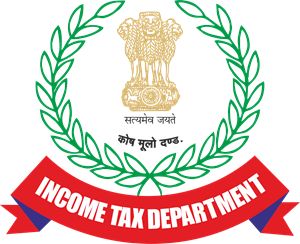In the ever-evolving landscape of income tax laws in India, individuals seek efficient ways to minimize their tax liabilities and enhance their financial well-being. This article delves into various strategies, supported by the Income Tax Act of 1961, that offer substantial opportunities for tax savings. By leveraging these methods, taxpayers can not only comply with the legal framework but also significantly reduce their tax burden, thereby optimizing their financial resources for better returns and savings.
1. Harness the Power of Section 80C
One of the cornerstone sections for tax-saving is Section 80C, which allows deductions up to Rs. 1.5 lakh on investments in Public Provident Fund (PPF), National Savings Certificate (NSC), Employee Provident Fund (EPF), and tax-saving fixed deposits. These instruments not only facilitate tax savings but also contribute to long-term wealth accumulation.
2. Optimize Health Insurance Under Section 80D
Section 80D provides deductions for premiums paid on health insurance for oneself, family, and parents, which can be particularly beneficial given the rising medical costs. This section also accommodates preventive health check-ups within its purview, offering a dual benefit of health security and tax savings.
3. Leverage Housing Loan Benefits
For homeowners with housing loans, deductions on interest payments offer a significant tax relief. Section 24(b) allows up to Rs. 2 lakh on interest payments for self-occupied properties, with additional benefits for first-time homebuyers under Section 80EE.
4. Explore the National Pension Scheme (NPS)
The NPS stands out as an efficient tool for retirement planning with tax benefits. Contributions towards NPS are eligible for deductions under Section 80CCD, which can substantially lower your taxable income while ensuring financial stability in your retirement years.
5. Utilize Deductions for Education Loans
Interest paid on education loans for higher studies can be claimed as a deduction under Section 80E, without any upper limit. This provision supports higher education while offering relief from the tax burden.
6. Invest in Tax-Saving Mutual Funds
Equity Linked Saving Schemes (ELSS) provide a lucrative option for tax-saving with the potential for high returns. Investments in ELSS are eligible for deductions under Section 80C, with a lock-in period of three years promoting long-term investment discipline.
7. Maximize Benefits with House Rent Allowance (HRA)
Salaried individuals can claim HRA to reduce their taxable income, which is especially beneficial for those living in rented accommodations. Proper documentation, such as rent receipts and agreements, is crucial to avail of this exemption.
8. Contributions to Charitable Causes
Donations made to specified charitable organizations allow for deductions under Section 80G. This provision not only encourages philanthropic activities but also offers tax benefits, making it a win-win situation for taxpayers and society.
9. Strategic Salary Structuring
Optimizing the salary structure to include tax-efficient components like HRA, Leave Travel Allowance (LTA), and medical reimbursements can significantly reduce taxable income. Engaging in discussions with employers to restructure salary components can lead to considerable tax savings.
10. Making Informed Decisions between New and Old Tax Regimes
With the introduction of a new tax regime, individuals have the flexibility to choose between the new and old regimes based on their financial situation and tax-saving investments. Each regime offers distinct advantages, and selecting the appropriate one can optimize tax savings.
Conclusion
The landscape of income tax savings in India presents numerous opportunities for individuals to reduce their tax liabilities through strategic investments and deductions. By understanding and utilizing these provisions, taxpayers can significantly enhance their financial health. It’s advisable to consult with tax professionals to tailor these strategies to one’s specific financial situation, ensuring compliance and maximizing benefits within the legal framework.
This comprehensive guide underscores the importance of proactive tax planning, encouraging individuals





